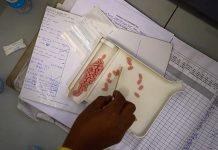Africa-Press – Lesotho. For a very long time now tourism has been identified as a sector that has ample opportunities and enough potential to transform the ailing Lesotho economy.
In recent years the sector has taken centre-stage on the government’s agenda as Lesotho’s leaders desperately seeks to quickly generate more jobs in a country where unemployment keeps rising and the country’s ailing economy needs to be rehabilitated.
The 2019/20 national budget has specifically put a strong emphasis on the sector, with Minister of Finance Dr Moeketsi Majoro proposing an allocation of M171 million towards the sector. However, despite such spirited plans by government the strongly desired outcomes have not been forthcoming. The big question has always been why.
Some analysts have attributed failures to lack of professionalism and dearth of skills, particularly within the Ministry of Tourism, Environment and Culture to ensure that the sector realises its full potential.
Politics also have a bad influence this regard, analysts say. Players in the sector, on the other hand, believe that it is not all doom and gloom in the industry.
However, they suggest government should enable the private sector to operate enterprises in the industry as these are the people who understand everything that needs to be done for the sector to flourish.
Government seems to have finally admitted that they will not get far on their own and have decided to fully engage the private sector and other stakeholders in formulation of a new tourism policy that is expected to be fully implemented soon.
All stakeholders in the country convened last week to discuss and provide input and review the new national tourism masterplan. The National Tourism Policy is described by government as one of the key targets set out for the tourism sector towards economic growth.
“The timing is ripe for our country to make a choice for tourism to become the strategic leading light to move Lesotho’s economy to more favourable horizons in the coming years.
The sector has the potential to facilitate solutions to our economy as it can stimulate economic growth, create SME businesses and the jobs that are crucial to the economic and social welfare of our citizens,” Minister of Tourism, Environment and Culture Joang Molapo said in the document.
Tourism is considered as one of the four priority sectors in the national economy which can leverage growth, create jobs and help in maintaining national stability. Support to the sector has been emphasised as crucial given its current and potential contribution to the economy.
The tourism policy therefore, coupled with an updated tourism Act and the National Tourism Master Plan will all go a long way towards unleashing the economic power of the industry, according to the minister.
One of the main purposes for the implementation of the new tourism policy is to close gaps in the existing tourism laws as well as strengthening other areas that need improvement in order to protect the industry.
According to the local analyst Majakathata Thakhisi Mokoena, it is difficult for the Ministry of Tourism to realise its full potential in the sector due to lack of professionalism and bad influence from politicians.
Mokoena said the problems for this country are identical and apply in all sectors and not just in tourism. He said the country poorly manages of its own assets, because of the tendency to put people in positions based on their political ground without any consideration of their level of professionalism.
“We do not put professionals to do the job and this is happening because we do not have an overall plan.
The strategy that Lesotho has been following is what we call the muddle through model where you just muddle along until such time that something happens and sometimes it does not work, specifically in a country such as ours where we have limited resources,” Mokoena said in an interview with Public Eye on Wednesday this week.
He went on to emphasise that another challenge is lack of industrial policy which could act as a guide in terms of planning for each and every asset the country has.
“Another important thing to note is that due to bad political influence, people that are employed to drive our economy but only make decisions based on immediate outcomes. Nobody thinks beyond their salaries and that has a negative impact with regard to the sector development.
“Tourism people do not see some of the things as important and that is a problem because sometimes people come up with brilliant ideas but then eventually the authorities mess them up just because they do not know anything about the sector they are in.
“That is how bad politics can influence decisions that could, in turn, benefit the country economically. So, unless we have an industrial policy that is driven by professionals, we are not going to see any progress,” Mokoena added.
Tourism is an important component in the global economy accounting for 10 percent of GDP and 0.3 billion jobs in 2017. The sector has been enjoying a period of strong growth in recent years.
According to the United Nations World Tourism Organisation (UNWTO) international tourist arrivals grew 7.0 percent in 2017, the highest increase since the 2009 economic crisis and well above UNWTO’s long-term forecast of 3.8 percent per year for the period 2010 to 2020.
Results have been driven by sustained travel demand for destinations across all world regions, including a firm recovery of those suffering from security challenges in recent years.
Growth has also been fueled by the global economic upswing, resulting in strong outbound demand in virtually all source markets and, as a result, 2017 was the seventh consecutive year of growth above the long-term average.
A comparable sequence of such uninterrupted solid growth has not been recorded since the 1960s. Furthermore, prospects for 2018 and beyond are good according to UNWTO, citing that international travel will continue to grow strongly, consolidating the tourism sector as a key driver of economic development.
Tourism, according to UNWTO, is the third largest export sector in the world and an essential sector for job creation and the prosperity of communities around the world.
At a regional level, the sector directly contributed around 2.8% of the total SADC GDP 2017 and when adding the indirect and induced economic impacts, its contribution was more than 8% of SADC GDP.
The sector directly sustained around 2.5 million jobs in the region. Tourism is arguably the economic sector with the best growth and employment potential in the region. Although small in absolute size, the economic importance of the sector in Lesotho is relatively higher than that for the world at large.
Based on World Travel and Tourism Council (WTTC) data, the direct contribution of Travel & Tourism (T&T) to GDP in Lesotho was LSL 1,915.5mn (USD 143.2mn), 6.3% of total GDP in 2017 and is forecast to rise by 1.7% in 2018.
The sector is further expected to rise by 3.4% between 2018 and 2028, reaching LSL 2,717.5mn (USD 203.2mn), which will be 5.8% of total GDP in 2028. The sector directly sustained no fewer than 43,000 jobs and international visitor expenditure accounted for around 5.5% of Lesotho exports in 2017.
With this analysis in mind, players in the tourism industry in Lesotho confirmed that indeed there is a huge potential in the sector, citing that the new tourism policy will make things easier for them to conquer.
This is particularly so because they were part of the planning and discussions surrounding the issue. “We are happy because this time around we were part of the whole processes and were able to share our views with other stakeholders, including government, regarding what is best for our industry to grow.
Because of that participation we were able to recommend some of the most crucial elements that we see as challenges today,” said Rethabile Phumane, the owner of Phumane Hospitality and Tourism Group.
Some of the challenges, according to Phumane, arose from the fact that some local police officers continued to solicit for bribes from tourists who visit the country to an extend that some of these tourists end up deciding not to visit Lesotho again and thus hampering progress.
Another problem is on the side of South African tour operators who also take advantage and hijack tourists from local operators and unfortunately in the process end up misleading tourists by providing them with wrong information regarding some areas of interest in the country.
According to Seabata Nqhesi, who is a national tour guide, the document is currently at the stage of scrutiny by government and other stakeholders before going to cabinet and parliament for approval at the later stage.
“We still have to look into it because we made several recommendations on some areas that were not included in the current document.
“For instance, we want the South African tour operators to pay in order for them to do some work in Lesotho just like we also have to pay to operate in their country.
At the moment they just come in and out as they please in Lesotho and that is not benefitting anybody but themselves,” Nqhesi said in an interview with Public Eye on Wednesday this week.
He added that they also recommended that government should not focus on providing support for areas that are already well established in the country such as Malea-Lea and Smonkong but instead put more effort on upgrading upcoming projects to raise their standards.
Establishments in Harapokolana and Sehlaba-Thebe national park should also be in the hands of the private sector because government has struggled to maintain them.
All these challenges and many others are addressed by the new tourism policy which also provides for support programmes for local tour operators in the country to be at par with their regional counterparts. Lesotho is blessed with natural beauty based on the distinctive and spectacular Maluti Mountains, the highest range in Southern Africa.
Touristic natural resources include mountains and highlands, various national parks and nature reserves, impressive rivers, lakes, waterfalls and hot springs, cave formations and a variety of flora and bird species.
The mountainous terrain and associated features provide a variety of adventure experiences to be enjoyed such as pony trekking, off-road driving, motorcycling, mountain biking and quad biking, hiking and trekking, mountain climbing, abseiling, para- and hang-gliding, kayaking, white river rafting and canoeing.
The country remains largely unexplored by both South African and overseas travellers with tourism largely concentrated around a limited range of activities and a few locations.
An important advantage, consequently, is that to a large degree Lesotho is seen as a domestic travel option for South African residents and a logical inclusion in overseas operators’ packages.






